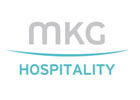MENA hotels strong, but hoteliers take note | MKG Reports

Oman is by far the most improved destination throughout the Middle East & North Africa (MENA) region in 2008, recording a remarkable 34% Revenue per Available Room (RevPAR) increase.
According to end of year results released by MKG Hospitality’s market monitoring database, Hotel Compset, Oman’s excellent performance was fuelled by a major growth of almost 40% in Average Daily Rate (ADR). Jordan was not so far behind, with a 26% growth in RevPAR, driven by a 17% increase in ADR and an 8.4% rise in Occupancy Rate (OR). Egypt, Qatar, Bahrain, Algeria and Tunisia also all recorded good results.
Overall however, Qatar recorded the highest RevPAR at $223, followed by the UAE at $211 and then Oman and Bahrain, almost equal at $164.
“However much the tourism sector has held up in 2008, and indeed it has resisted the downturn far better than other industries, the economic downturn will start to take its toll in the coming months, as consumers and companies alike continue to cut back on travelling expenses,” stated Director of Development, MKG Hospitality, Vanguelis Panayotis.
Forecasts suggest that the situation will deteriorate over the next 6-9 months. Most countries in the region have already started to see a decrease in OR, signalling that demand has dropped. Hoteliers are now expected to further reduce their prices in order to encourage more guests.
“The indicator that must be observed very carefully now is ADR. As demand is decreasing, competition will increase and then the market will start to drop its prices in order to maintain occupancy rates. When ADR decreases for several months versus year-to-date, it is a clear sign of recession,” continued Panayotis.
“Unfortunately this sign might be stronger in some markets such as MENA, where the majority of the rooms are in the upscale and midscale segments, compared to mature markets in Western Europe and the US, where there is more of an equilibrium between hotel categories. The higher the category, the more volatile price is, so we can expect the MENA region to show stronger decreases than markets with more budget rooms. With this in mind, 2009 and 2010 should see the development of more budget-orientated products in the region, such as Express by Holiday Inn, Ibis and the new concept from Rotana, Centro.
According to Panayotis however, the fact that the region is dominated by international and regional hotel operators is a good sign, as it will help withstand the downturn, with their versatility to reduce the impact of recession and to maximise operational efficiency.
Overall, the difficultly for hoteliers now will be surviving the downturn, especially not knowing exactly how long it will last, as President & CEO, World Travel & Tourism Council, Jean-Claude Baumgarten explains: “These are very challenging times for Travel & Tourism (T&T), as well as for other economic sectors. It is now no longer a question of whether there will be a recession, but rather how long it will last. And there is no magic solution… no quick fix.”
“It is important to remember however that T&T is a very resilient industry – people will not stop travelling for long if they can help it. Travel has become a greater priority than consumables generally. And, unlike the situation after 9/11 or SARS, the desire to travel has not disappeared this time – except in isolated cases (e.g. on a temporary basis for India after the Mumbai terrorist attacks). It’s just a question of whether one can afford to travel as usual,” said Baumgarten.
As hotel demand decreases in 2009 and travellers continue to spend less, industry-professionals will be taking drastic action to uphold their level of competitiveness. Using the downturn period as an opportunity to plan for the future will also no doubt be critical.
“During this difficult period, hotels should focus on two strategies: Cost and Revenue,” explained Revenue Manager, Millennium Hotel Abu Dhabi, Ahmed Rasmy.
“Initiate a brain storming session to reduce costs and develop revenue streams to capture new opportunities. Applying a total revenue management concept will also reduce the impact. The key for success is the coordination between all hotel departments and having a unified goal.”
MKG Hospitality, along with other leading experts will be participating at the HOTEC Middle East 2009 Panel Discussion in April. The event is set to be a lively debate on sustaining the Middle Eastern Hotel Industry through this Global Economic Crisis. Delegates will benefit from the interactive format, as they will be able to raise questions and contribute their knowledge to ensure that the panel discussion not only addresses this important issue, but reaches important conclusions, guidelines and predictions.
MKG Database Department
+33 (0)1 56 56 87 87
Hospitality ON
